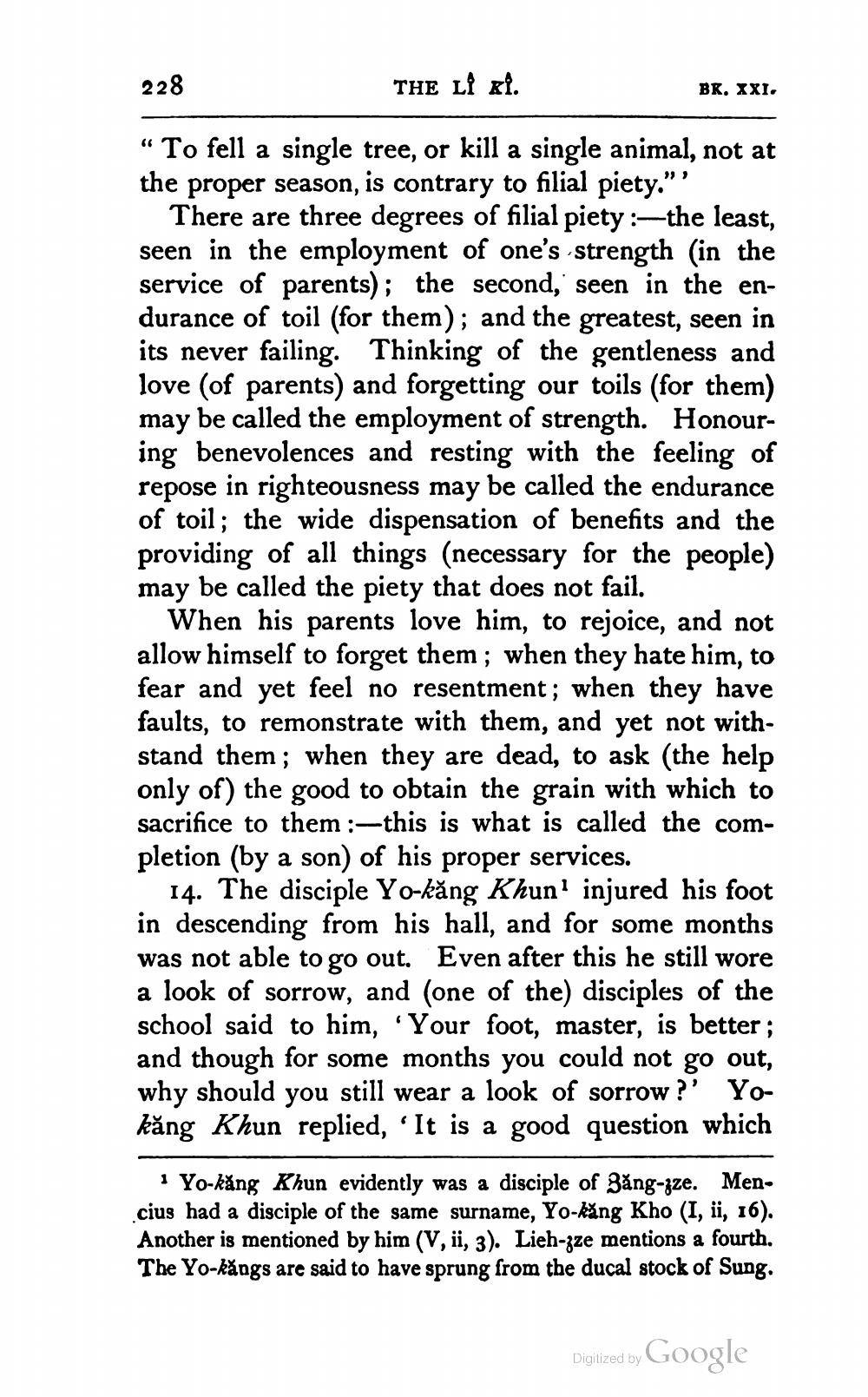________________
228
THE L xl.
BK, XXI.
“ To fell a single tree, or kill a single animal, not at the proper season, is contrary to filial piety."
There are three degrees of filial piety :the least, seen in the employment of one's strength (in the service of parents); the second, seen in the endurance of toil (for them); and the greatest, seen in its never failing. Thinking of the gentleness and love (of parents) and forgetting our toils (for them) may be called the employment of strength. Honouring benevolences and resting with the feeling of repose in righteousness may be called the endurance of toil; the wide dispensation of benefits and the providing of all things (necessary for the people) may be called the piety that does not fail.
When his parents love him, to rejoice, and not allow himself to forget them ; when they hate him, to fear and yet feel no resentment; when they have faults, to remonstrate with them, and yet not withstand them; when they are dead, to ask the help only of) the good to obtain the grain with which to sacrifice to them :- this is what is called the completion (by a son) of his proper services.
14. The disciple Yo-kăng Khun' injured his foot in descending from his hall, and for some months was not able to go out. Even after this he still wore a look of sorrow, and (one of the) disciples of the school said to him, Your foot, master, is better; and though for some months you could not go out, why should you still wear a look of sorrow?' Yokăng Khun replied, 'It is a good question which
1 Yo-kăng Khun evidently was a disciple of Băng-zze. Men.cius had a disciple of the same surname, Yo-kăng Kho (I, ii, 16). Another is mentioned by him (V, ii, 3). Lieh-zze mentions a fourth. The Yo-kăngs are said to have sprung from the ducal stock of Sung.
Digitized by Google




